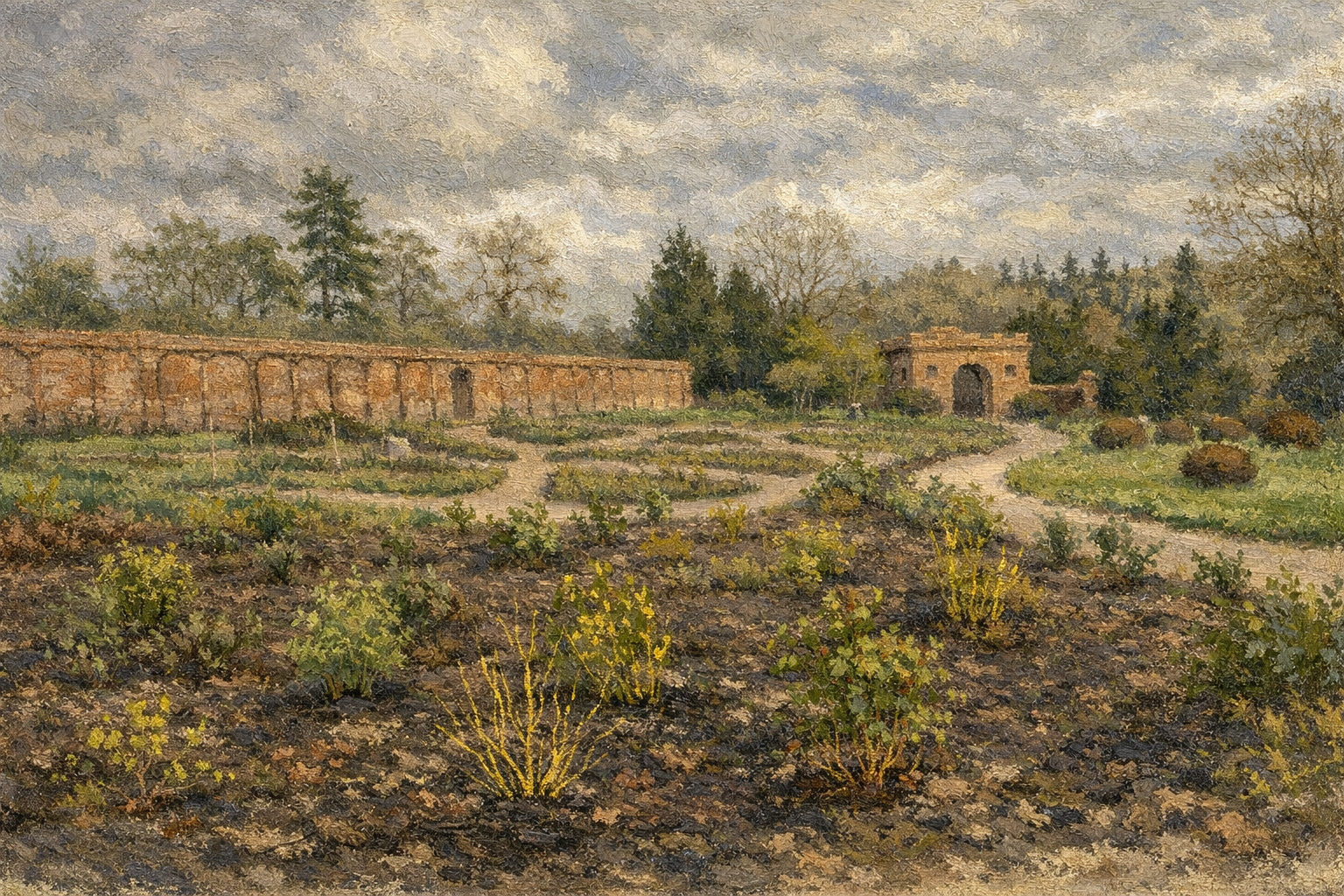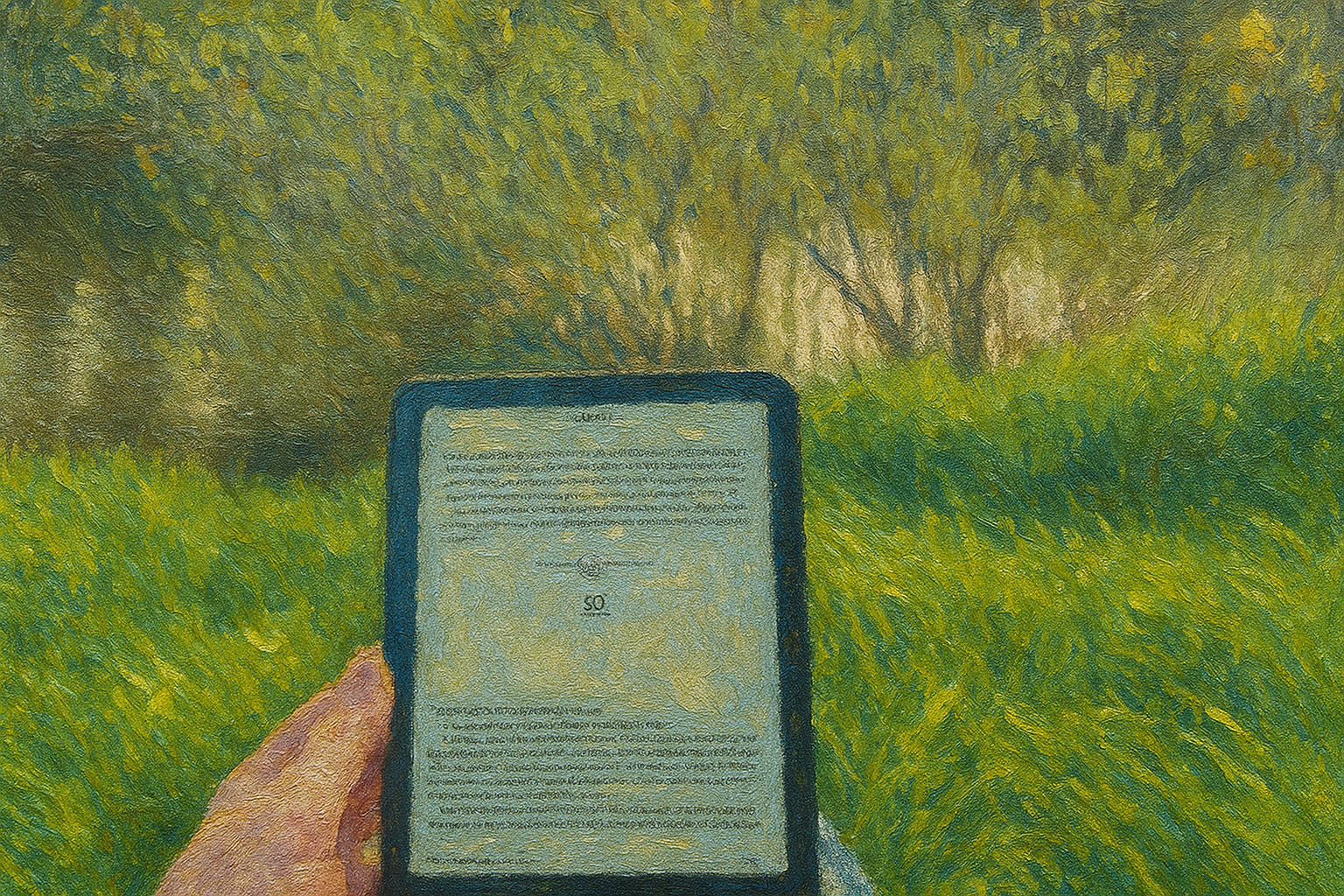Every modern writer knows the tyranny of the flashing cursor on a blank page. As I sit in my wife’s art room watching rust-coloured leaves litter our verdant lawn—brought back to life from months of prolonged drought—I contemplate how to find my writing flow.
This year’s harsh spring and summer yielded little rainfall, leading many of our plants and flowers to suffer the brunt of high, prolonged temperatures. Some bolted and went to seed far too early and died, whilst others merely wilted away to husks of promised glory. Only in recent weeks have the heavens opened, and those once desperate are now more than satisfied. Watching their transformation has been like witnessing a resurrection; and in so doing, I’m reminded about something profound regarding the writing craft: it needs continuous, nurturing conditions to grow and flourish. One of those conditions is time—not just any time, but sustained, patient time. Fits and spurts will never suffice; they lead only to fast growth that withers as quickly as it bloomed. This train of thought carries me back to my former life, before we called the ancient borderlands of Herefordshire home.
The Setting of Time
Some years ago I commuted daily from Surrey into London—a journey that took up to an hour and a half, depending on where I worked within the city. Most people I saw had their heads down, possessed by various forms of entertainment on their phones: games, TV programmes, social media, and the ever depressing news. Some were working already to get a head start on the day’s events. Few read books. Fewer still were writing—unless composing emails for work.
This travel time to me seemed like dead time at first. The old demons that demanded attention haunted me: that this would be a good time to play a game or endlessly scroll through social media like the rest of the unspeaking, unsocial crowd, until the train arrived at the destination, and I could walk the remainder of the journey to the office. The vicious cycle would repeat on the way home, and after dinner I could resume the writing responsibilities I had imposed upon myself, tired after a day’s work, yet desperate to achieve my goal. This resulted in a stressful effort, and one in which I became increasingly frustrated for all the distractions of a full time job getting in the way of what I wanted to do.
If it weren’t for my day job, however, there would have been no food nor clothing, and certainly no house. In the first few months of spring we sow seeds into small pots, place those inside a tray, and place a lid over the top. Within a few weeks and with good fortune, the seeds sprout and poke their delicate green heads through the earth like little awakening children, and we have the pleasure of watching them go on to grow into large plants with continuous care and nurture for a long time thereafter. Many years later, I’ve realised that my day job has been the incubator all this time, and my writing life no more than a seedling coming into the fullness of growth. Without the cover of the continuous pay, my writing aspirations would have been subjected to the harsh winds and sporadic rains of finding my next source of income.
A Discovery Unearthed
But at the time I didn’t have this knowledge, and thus my thirst for an answer went unquenched. It was when reading J.R.R Tolkien’s 226th letter to Professor L.W. Forster on December 31, 1960, I discovered that William Morris, famously known for his tapestries and prints, was also a writer.
“The Dead Marshes and the approaches to the Morannon owe something to Northern France after the Battle of the Somme. They owe more to William Morris and his Huns and Romans, as in The House of the Wolfings or The Roots of the Mountains.”
- J.R.R.Tolkien
How could William Morris accomplish so much as both artist, printer, and writer, whilst running his own company and hosting lavish dinners before his death at the age of 62? My research led me to historian Michael Ledger-Lomas, who provided the answer I’d been seeking:
“Composing verse on trains or while sat at the loom, he (Morris) could turn out a thousand lines a day.”
- Michael Ledger-Lomas
I was immediately reminded of Gandalf’s line to Frodo:
“All we have to decide is what to do with the time that is given us.”
- J.R.R.Tolkien - Book 1, Chapter 2 - The Lord of the Rings: The Fellowship of the Ring
A Death Transformed
I realised that these long train journeys were not dead time at all! Here lay ample opportunity—fertile ground yet unbroken: a dedicated forty minute journey in which I could re-read what I had written the previous day and write within Microsoft Word on my phone. Typing on a phone can be difficult at the best of times, but thankfully predictive text nowadays makes this an easier task than what it used to be. As a writer of fantasy, you can imagine the number of times words were highlighted as incorrect English. But adding these new words was merely a tap away from being added to my phone’s dictionary.
Suddenly the stress of drinking coffee after 8:30pm on a weekday to write in a single, dedicated slot, was lifted. I could read anywhere. I could review anywhere. But most importantly: I could write anywhere.
I followed Stephen King’s advice of re-reading the previous day’s work before beginning—often when walking to the train station or waiting for the train to arrive—which then gave me the perfect opportunity to sit and enter into the flow state for the duration of the journey. It wasn’t always possible to enter into a mindset for writing, particularly on London trains. There are many distractions of conversations and delays and, if you’re not careful with your phone notifications, friends, family, and work. Yet what I was doing was continuously preparing the bed for growth. If I could write a hundred words within those forty minutes, I was a hundred words closer to finishing my work. And if I could do the same on the return journey, I had completed two hundred words out of my thousand daily quota in what I had previously considered “dead time”.
The beatific thing was, as I continuously built this habit for five days of the week, I found myself writing considerably more than a mere hundred words each time I opened my phone. Often when I reviewed my work later that evening, I found I was near to the daily quota if I hadn’t exceeded the word count. I think it’s fair to say the majority of my debut fantasy novel, The Emissaries from Ebron, was written on a Southern Railway service between Purley and London Bridge.
Time: The Soil for Growth
I had purposefully made it easy to indulge my passion by turning off the distractions of my phone; and with a little help from noise-cancelling headphones, I could likewise turn off the distractions of the modern hubbub of the London commute.
Unless I decided to read, for almost an hour and a half for five days a week I had time to sit and write. When I walked between train stations, I found myself mulling over not only my story and characters and the fantastical setting of Ruach, but also whatever I had read and how I could weave in the lessons learnt from accomplished authors.
The realisation that my commute was not dead time, but fertile ground for the seedling of my writing career and debut novel, made me appreciate and look forward to something that I once found a frustration. It took a little investment, but such is the way of all worthwhile things in life. The reward is infinitely greater than the price first asked. The time is always there, hidden in the rhythms of our daily lives—on trains, during lunch breaks, in the quiet moments before the house wakes. Our art doesn’t always have to wait for the perfect conditions; sometimes, like many of the plants we pass on our commute, it can grow strong in the borrowed light of the life we are already living.






